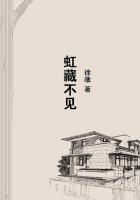PROFESSOR BRADDOCK
There was only one really palatial mansion in Gartley, and that was the ancient Georgian house known as the Pyramids. Lucy's stepfather had given the place this eccentric name on taking up his abode there some ten years previously. Before that time the dwelling had been occupied by the Lord of the Manor and his family. But now the old squire was dead, and his impecunious children were scattered to the four quarters of the globe in search of money with which to rebuild their ruined fortunes. As the village was somewhat isolated and rather unhealthily situated in a marshy country, the huge, roomy old Grange had not been easy to let, and had proved quite impossible to sell. Under these disastrous circumstances, Professor Braddock - who described himself humorously as a scientific pauper - had obtained the tenancy at a ridiculously low rental, much to his satisfaction.
Many people would have paid money to avoid exile in these damp waste lands, which, as it were, fringed civilization, but their loneliness and desolation suited the Professor exactly. He required ample room for his Egyptian collection, with plenty of time to decipher hieroglyphics and study perished dynasties of the Nile Valley. The world of the present day did not interest Braddock in the least. He lived almost continuously on that portion of the mental plane which had to do with the far-distant past, and only concerned himself with physical existence, when it consisted of mummies and mystic beetles, sepulchral ornaments, pictured documents, hawk-headed deities and suchlike things of almost inconceivable antiquity. He rarely walked abroad and was invariably late for meals, save when he missed any particular one altogether, which happened frequently. Absent-minded in conversation, untidy in dress, unpractical in business, dreamy in manner, Professor Braddock lived solely for archaeology. That such a man should have taken to himself a wife was mystery.
Yet he had been married fifteen years before to a widow, who possessed a limited income and one small child. It was the opportunity of securing the use of a steady income which had decoyed Braddock into the matrimonial snare of Mrs. Kendal. To put it plainly, he had married the agreeable widow for her money, although he could scarcely be called a fortune-hunter. Like Eugene Aram, he desired cash to assist learning, and as that scholar had committed murder to secure what he wanted, so did the Professor marry to obtain his ends. These were to have someone to manage the house, and to be set free from the necessity of earning his bread, so that he might indulge in pursuits more pleasurable than money-******. Mrs. Kendal was a placid, phlegmatic lady, who liked rather than loved the Professor, and who desired him more as a companion than as a husband. With Braddock she did not arrange a romantic marriage so much as enter into a congenial partnership. She wanted a man in the house, and he desired ******* from pecuniary embarrassment. On these lines the prosaic bargain was struck, and Mrs. Kendal became the Professor's wife with entirely successful results. She gave her husband a home, and her child a father, who became fond of Lucy, and who - considering he was merely an ******* parent - acted admirably.
But this sensible partnership lasted only for five years. Mrs.
Braddock died of a chill on the liver and left her five hundred a year to the Professor for life, with remainder to Lucy, then a small girl of ten. It was at this critical moment that Braddock became a practical man for the first and last time in his dreamy life. He buried his wife with unfeigned regret - for he had been sincerely attached to her in his absent-minded way - and sent Lucy to a Hampstead boarding school. After an interview with his late wife's lawyer to see that the income was safe, he sought for a house in the country, and quickly discovered Gartley Grange, which no one would take because of its isolation. Within three months from the burial of Mrs. Braddock, the widower had removed himself and his collection to Gartley, and had renamed his new abode the Pyramids. Here be dwelt quietly and enjoyably - from his dry-as-dust point of view - for ten years, and here Lucy Kendal had come when her education was completed. The arrival of a marriageable young lady made no difference in the Professor's habits, and he hailed her thankfully as the successor to her mother in managing the small establishment. It is to be feared that Braddock was somewhat selfish in his views, but the fixed idea of archaeological research made him egotistical.
The mansion was three-story, flat-roofed, extremely ugly and unexpectedly comfortable. Built of mellow red brick with dingy white stone facings, it stood a few yards back from the roadway which ran from Gartley Fort through the village, and, at the precise point where the Pyramids was situated, curved abruptly through woodlands to terminate a mile away, at Jessum, the local station of the Thames Railway Line. An iron railing, embedded in moldering stone work, divided the narrow front garden from the road, and on either side of the door - which could be reached by five shallow steps - grew two small yew trees, smartly clipped and trimmed into cones of dull green. These yews possessed some magical significance, which Professor Braddock would occasionally explain to chance visitors interested in occult matters; for, amongst other things Egyptian, the archaeologist searched into the magic of the Sons of Khem, and insisted that there was more truth than superstition in their enchantments.















